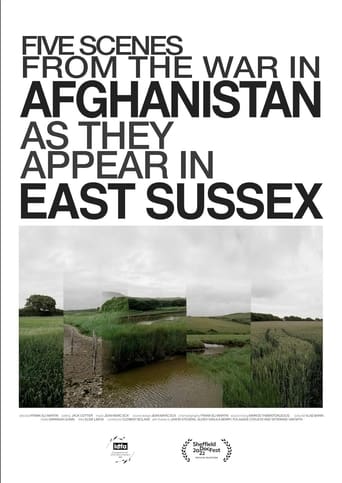Five Scenes from the War in Afghanistan as They Appear in East Sussex
In a greenhouse in England, a military veteran talks about his experiences as a soldier in Afghanistan. Clement Boland served with the British Army in Helmand Province for more than ten years and has suffered from PTSD since his return. His therapy now consists of gardening. In five insightful scenes, he talks about how the landscapes of East Sussex and Afghanistan keep intertwining because of his repeated reliving of memories of the war. One image he can’t get out of his mind is of an Afghan man who “looked like Jesus.” Clement wasn’t the one who fired the shot, but he feels guilt nonetheless. In a greenhouse in England, a military veteran talks about his experiences as a soldier in Afghanistan. Clement Boland served with the British Army in Helmand Province for more than ten years and has suffered from PTSD since his return. His therapy now consists of gardening. In five insightful scenes, he talks about how the landscapes of East Sussex and Afghanistan keep intertwining because of his repeated reliving of memories of the war. One image he can’t get out of his mind is of an Afghan man who “looked like Jesus.” Clement wasn’t the one who fired the shot, but he feels guilt nonetheless. In a greenhouse in England, a military veteran talks about his experiences as a soldier in Afghanistan. Clement Boland served with the British Army in Helmand Province for more than ten years and has suffered from PTSD since his return. His therapy now consists of gardening. In five insightful scenes, he talks about how the landscapes of East Sussex and Afghanistan keep intertwining because of his repeated reliving of memories of the war. One image he can’t get out of his mind is of an Afghan man who “looked like Jesus.” Clement wasn’t the one who fired the shot, but he feels guilt nonetheless. In a greenhouse in England, a military veteran talks about his experiences as a soldier in Afghanistan. Clement Boland served with the British Army in Helmand Province for more than ten years and has suffered from PTSD since his return. His therapy now consists of gardening. In five insightful scenes, he talks about how the landscapes of East Sussex and Afghanistan keep intertwining because of his repeated reliving of memories of the war. One image he can’t get out of his mind is of an Afghan man who “looked like Jesus.” Clement wasn’t the one who fired the shot, but he feels guilt nonetheless.



 AD
AD